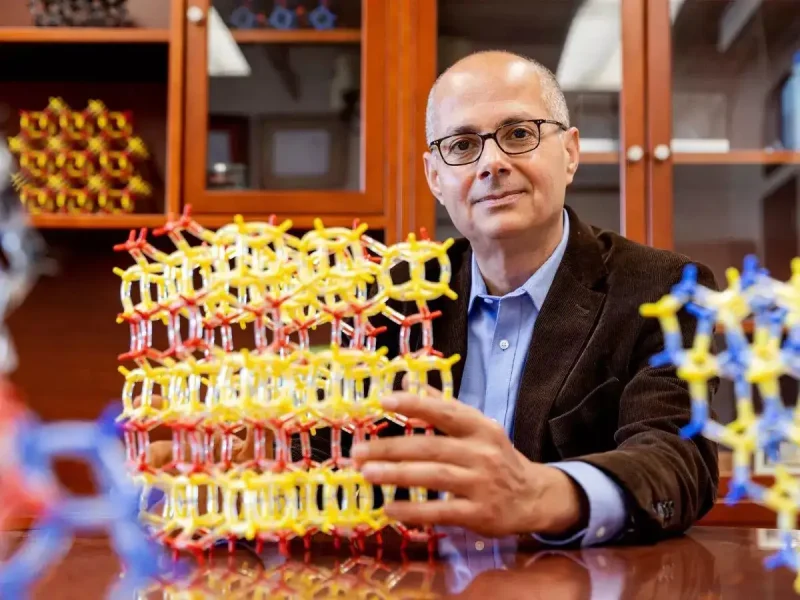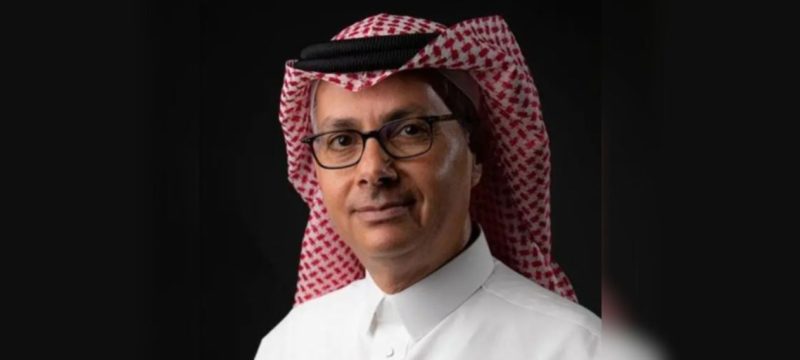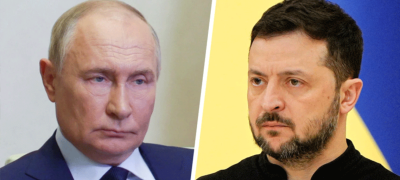Omar Yaghi, a Jordanian-Palestinian chemist, has been awarded the 2025 Nobel Prize in Chemistry, sharing the honor with Susumu Kitagawa and Richard Robson. The Nobel Committee recognized their pioneering work on metal–organic frameworks (MOFs) — porous crystal structures that can trap gases, harvest water, and help tackle environmental challenges such as carbon emissions and clean water scarcity.
Born in Amman, Jordan, in 1965 to Palestinian refugee parents who fled Gaza in 1948, Omar Yaghi rose from humble beginnings to become one of the most respected scientists in the world. His early life was marked by hardship; he grew up in a crowded household shared with relatives and livestock. At just 10 years old, a simple stick-and-ball molecular model he discovered at a library sparked his lifelong fascination with chemistry. At 15, Yaghi moved to New York with limited English skills and no formal high school diploma. He began at Hudson Valley Community College before transferring to the University at Albany, where he earned his chemistry degree in 1985. He later obtained his Ph.D. in chemistry from the University of Illinois Urbana-Champaign and completed postdoctoral research at Harvard University.

Yaghi’s scientific breakthrough came through his development of metal–organic frameworks, complex molecular architectures composed of metal ions linked by organic compounds. These structures can absorb gases, filter pollutants, and even extract water from dry air. His work not only revolutionized material chemistry but also laid the foundation for practical applications in climate solutions, renewable energy, and water purification. The Nobel Committee described his approach, known as “reticular chemistry,” as a creative leap that redefined molecular design.
Currently, Omar Yaghi serves as the James and Neeltje Tretter Chair Professor of Chemistry at the University of California, Berkeley, where he leads a research group dedicated to advancing MOF technologies. He also founded Atoco, a company that applies MOF science to water harvesting and carbon capture.
Yaghi’s Nobel Prize win has sparked immense pride across the Arab world. Leaders and academics praised his achievement as a symbol of hope and perseverance. Jordan’s King Abdullah II congratulated Yaghi, calling his success “a testament to Jordan’s and Palestine’s enduring spirit.” The Vice President of the UAE also commended him, saying his work restores confidence in young scientists throughout the region.
Reflecting on his journey, Omar Yaghi said he never set out to solve global crises, but to create “beautiful things” and explore the intellectual puzzles of chemistry. His story — from a refugee background to the world’s highest scientific honor — stands as an inspiration to young scientists everywhere, proving that passion and perseverance can turn even the most improbable beginnings into extraordinary success.
In other news also read about Sir John B. Gurdon, Nobel Laureate Who Revolutionized Cloning, Dies at 92









